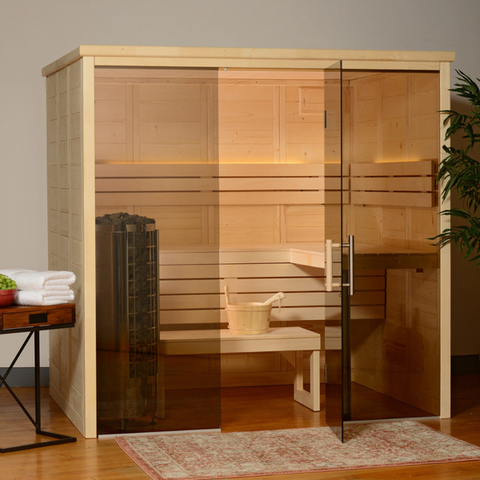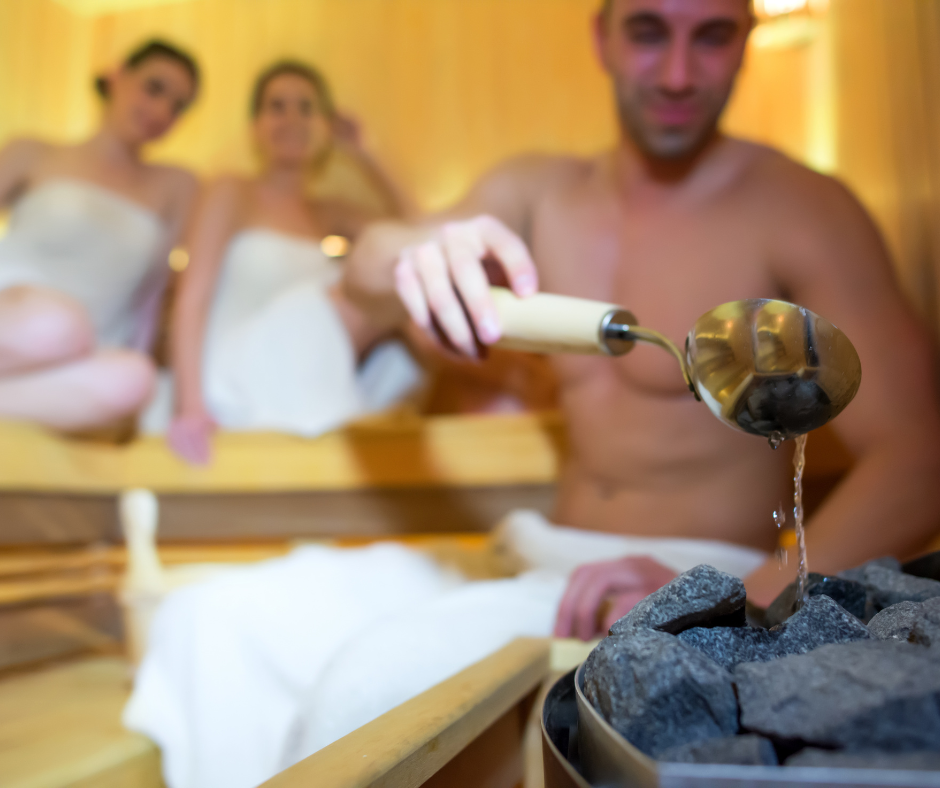 Sauna where to put your indoor?he first problem you'll encounter after buying a home sauna is where to put it. Some may want to place it in their attic or garage, while others prefer to have it on the second floor or bathroom.
Sauna where to put your indoor?he first problem you'll encounter after buying a home sauna is where to put it. Some may want to place it in their attic or garage, while others prefer to have it on the second floor or bathroom.
Yet, in reality, you can install your indoor sauna in almost any spot at home.More +
 How do I clean the sauna?Saunas will need cleaning after prolonged usage. In case of regular use, we advise cleaning it once a month. The most effective saunas are those that are hygienic. Here are some quick and simple steps for cleaning a sauna and increasing your health and happiness. Before trying any of these deep-cleaning methods, be sure to wait until the sauna has cooled down and stopped running before cleaning it!
How do I clean the sauna?Saunas will need cleaning after prolonged usage. In case of regular use, we advise cleaning it once a month. The most effective saunas are those that are hygienic. Here are some quick and simple steps for cleaning a sauna and increasing your health and happiness. Before trying any of these deep-cleaning methods, be sure to wait until the sauna has cooled down and stopped running before cleaning it!More +
 Saunas & mental health: does sauna help with anxiety?
Saunas & mental health: does sauna help with anxiety?
American Psychiatric Association defines anxiety as an emotion characterized by feelings of tension, worry, and apprehension about future events or situations.
Anxiety is a natural stress response and can actually be beneficial in some situations, such as pushing us to perform better under pressure or keeping us alert in potentially dangerous situations.
When it becomes chronic and excessive, however, anxiety can interfere with your daily life, resulting in several mental health issues. The symptoms of anxiety can manifest in multiple ways, including:
Emotional symptoms: excessive worry, irritability, restlessness, and a sense of impending doom.
Cognitive symptoms: racing thoughts, difficulty concentrating, and negative thought patterns.
Physical symptoms: rapid heartbeat, shortness of breath, muscle tension, sweating, trembling, and fatigue.
Whether you're suffering from a generalized anxiety disorder, obsessive-compulsive disorder, or post-traumatic stress disorder, it can create havoc on your mental health.
Research shows excessive anxiety can lead to depression, insomnia, substance abuse, or other behavioral issues.
The good news is that there are numerous ways to treat anxiety disorders, and many of them can be done on your own or with the help of a therapist. While medications and therapy are often effective, they don't work for everyone.
If you don't want to take medications and are looking for an alternative approach, consider sauna bathing.More +

{item.title}
{item.description}
More +

86 15370875392
+86 15370875392
info@tysaunaroom.com
Perfect After-Sales Service
Customized service
Quality assurance
Efficient communication
Get in Touch



